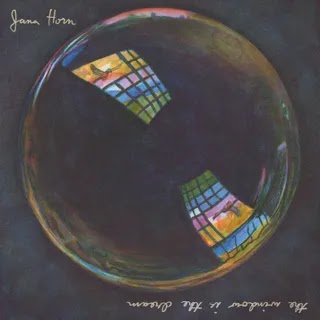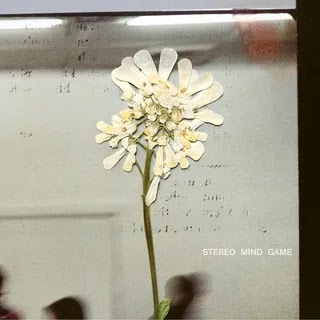The singer-songwriter’s fourth album is largely focused on spiritual shifts and ruptures. Throughout, Geist presents a quiet, lovely, undramatic rendering of the dramatic.
Earlier this year, the transcendental folk musician Shannon Lay performed a tarot reading for her fourth solo album, Geist. In a video posted to her Patreon, she revealed one of the deck’s most dramatic and foreboding images: two figures plummeting from a burning castle struck by lightning—the Tower card, known in some decks as the Tower of Destruction, said to be a harbinger of violent and sundering change. Geist, an album largely focused on spiritual shifts and ruptures, is a quiet, lovely, undramatic rendering of the dramatic. It’s perhaps a different way to interpret the Tower: how ruination can lead to resurrection, and life can feel sweetest when one surrenders to change.
After traipsing around Los Angeles’ art-punk and garage-rock scenes, eventually joining Ty Segall’s Freedom Band, Lay now primarily plays solo, turning down the volume and directing her energy inward. Folk music, she found, best translated her pre-modern and mystic vision of the world. Her influences—the soft psychedelic folk and pastoralia of Vashti Bunyan, Sandy Denny, and Anne Briggs—spoke for Lay on her solo debut, 2016’s timid and reverb-drenched All This Life Going Down. On her second album, Living Water, she removed the reverb and inched closer to the center of the mix. By 2019’s August—named after the month she decided to pursue music full-time—she sounded bolder, more jovial and experimental. It seemed to come from a place of generative optimism and willful abandonment.
On Geist, Lay is more distinct and expressive than ever; it’s the sound of an artist seeing themselves—their personality and temperament—reflected back to them for the first time. Lay tracked her vocals and guitar at Jarvis Taveniere’s (Woods) studio, before sending them to multi-instrumentalists Devin Hoff (Sharon Van Etten, Cibo Matto) and Ben Boye (Bonnie Prince Billy, Ty Segall). Those recordings were then transferred to Aaron Otheim (Heatwarmer, Mega Bog) and Sofia Arreguin (Wand) for additional keys and flourishes, while Segall provided a guitar solo on “Shores.” The result is far more aesthetically focused and meticulously arranged than the process might suggest.
Though Lay homes in on ideas about change and metamorphosis, she still encourages stillness and sitting with the present moment. You can hear this in the instrumentation: how it moves like an underwater current, shifting then settling, then shifting again. On “Rare to Wake” and “A Thread to Find,” Lay’s fingerpicked melodies move like two chalices pouring liquid back and forth. Her harmonies, rich as the Roches’, float over piano as her voice simultaneously embodies childlike curiosity and sagacious wisdom: “Without change something sleeps inside us/Rare to wake,” she sings in a slithering melody.
Lay is the kind of songwriter who doubles as a spiritual guide, kindly and patiently directing the listener towards their own sense of inner tranquility. As if leading by example, the songs on Geist gradually decelerate, until, by album’s end, Lay’s simplicity and dilatoriness become the source of her power. “The way you kiss will always be a very special thing to me,” she sings on the especially slow-moving “Late Night.” The sentiment may read laughably frank and facile on the page, but at Lay’s considered tempo, it makes clear her intention to eke out the most essential parts of each feeling and every moment. It’s the kind of joyous, vital detail that can only be drawn by keeping still long enough to truly take stock.
















0 comments:
Post a Comment